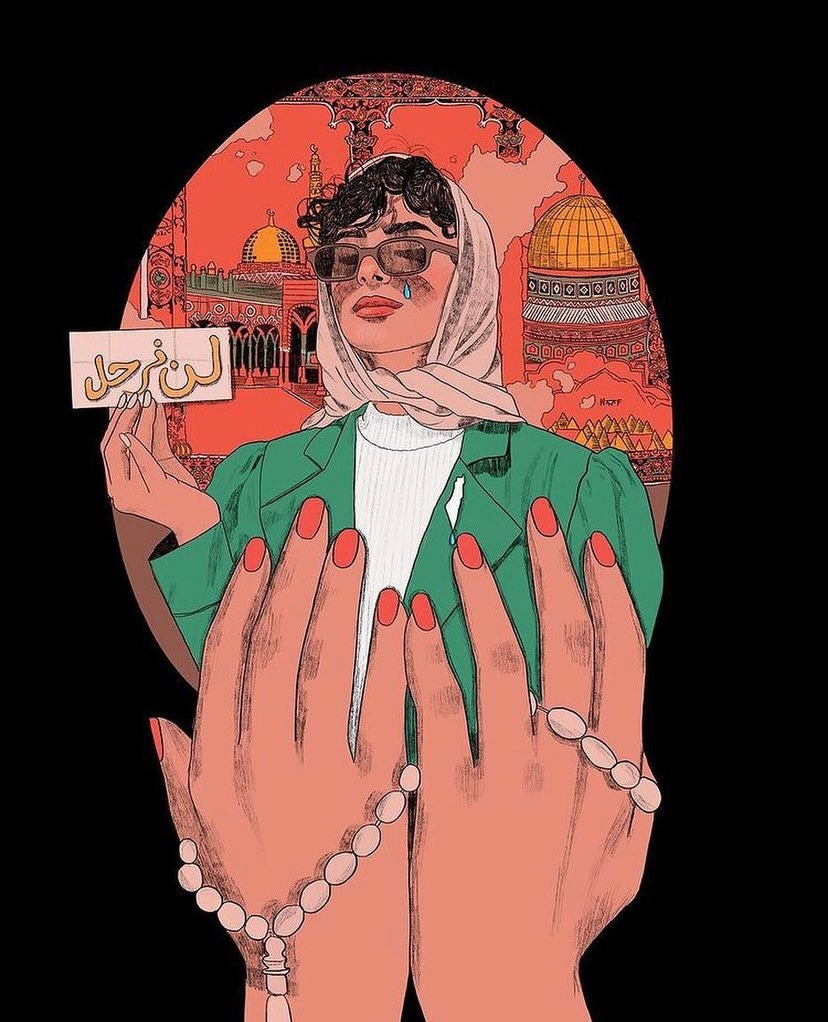I realize the conversation about “Israel vs Palestine” is wrought with intense feelings and loyalties. It is a complex mess of history and harm that has shaped the people of the region for generations.
But it is not a conflict. Conflict implies a balance of power of which there isn’t one here. “There is an active oppressor (Israel) and an oppressed (Palestine). A colonizer (Israel) and a colonized (Palestine).”
Nor is it someone else’s problem. Each year, $3,800,000,000 of our tax dollars are invested in Israel's oppression of Palestinians. Palestinians have been existing under the longest illegal occupation in modern history. And the Human Rights Watch just released a report charging Israel with crimes against humanity and officially declaring it an apartheid state.
There is so much to do domestically - so much to repair and make right - that it is often difficult to acknowledge the what is happening around the world. But our struggles are intertwined as we stand against all forms of oppression and continue to fight active western imperialism and colonialism in Palestine and beyond. Which is “why we must be internationalists in the struggle” as Nelini Stamp encourages us. Internationalism recognizes that the freedom of the other is bound in our own freedom and vice versa.
Nelson Mandela knew this when he said “we know too well that our freedom is incomplete without the freedom of Palestinians”.
Don’t duck this issue because it seems heated and complex. Lean in and learn. Then take action (below).
Kerri (she/her)
Art by @nouriflayhan
The attempts by settlers to forcibly displace Palestinian families have set off a catastrophe. Here’s why so much rests on the fate of a tiny neighborhood in east Jerusalem. [click to tweet]
“The violence in Jerusalem over the pending evictions of Palestinians horrifies me”. In this op-ed, a Jewish American writer calls for an end of the Israeli occupation of Palestine. [click to tweet]
How white people use the subtle linguistics of polite white supremacy to be comfortable in all settings while maintaining some influential level of control over all situations without acknowledging this power. [click to tweet]
The shared world is not equally shared. How creating an inhabitable world for humans means dismantling rigid forms of individuality. [click to tweet]
Since Critical Race Theory is being called ‘Indoctrination,’ let’s go there…Indoctrination is how slaveholders used Christianity to justify slavery. And when those tactics didn’t work, they whipped, beat and murdered them to instill fear. [click to tweet]
The US is not only complicit in the violence and occupation of Palestine, it’s deeply invested. We have a part to play in this. Here’s how you can take action.
PRESSURE US GOVERNMENT. Demand that the US a) end military funding to apartheid Israel and similarly criminal regimes of oppression worldwide, (b) ban all goods/services of companies operating in Israel’s illegal colonial settlements; and (c) demand a UN investigation of Israeli apartheid. Sign here.
SUPPORT H.R. 2590: Representative Betty McCollum's historic bill, H.R. 2590, the Palestinian Children and Families Act ‘insists on the rights to safety, dignity, and freedom for the Palestinian people: the freedom to thrive, free from child detention, home demolitions, continual Israeli annexation and land theft. Tweet your Congress Members to become co-sponsors.
BOYCOTT. DIVESTMENT. SANCTIONS. BDS is a Palestinian-led movement that upholds the simple principle that Palestinians are entitled to the same rights as the rest of humanity. the movement is fighting for liberation from ethnic cleansing, dispossession, colonization, war crimes and apartheid through withdrawing support and investments from the State of Israel and from companies that sustain Israeli apartheid. Here’s a list.
FOLLOW. Listen, learn and respond to the leadership of Palestinian solidarity organizations including @eye.on.palestine @theimeu @landpalestine @adalajusticeproject @ifnotnow
DONATE to Palestinian organizations on the ground like Grassroots Jerusalem.
Al-faza’a is the Arabic term for a surge of solidarity. Which is exactly what we need right now in the fight for freedom around the world. But showing up in solidarity is not an invitation to assume leadership and control. The practice is inherently relational. It asks us to locate ourselves in the context of the issue and impact we are engaging in so that we can defer to those who know the way. Because people on the receiving end of great injustices have to live with the consequences of campaigns that seek to address those injustices, they have the most to gain from victory — and the most to lose if something goes wrong. They’re also the best equipped to know, and to articulate, workable solutions to their problems and imagine a future where everyone can thrive. Here is a powerful conversation between Nadia Bolz-Weber and Rev. Dr. Mitri Raheb who speaks from the front lines in Palestine.
We must show up for one another, no matter how far. Because “nobody’s free until everybody’s free”.
Art by @ariadelsole
CTZNWELL is community powered and crowd-sourced. That’s how we keep it real. Please consider joining us on Patreon for as little as $2/month so that we can keep doing the work of creating content that matters for CTZNs who care.








